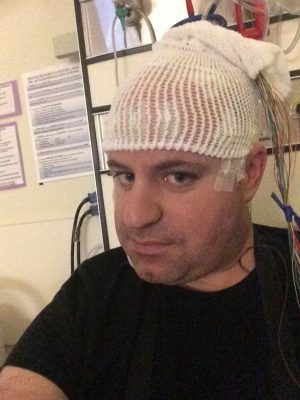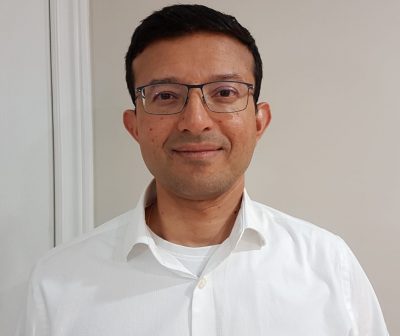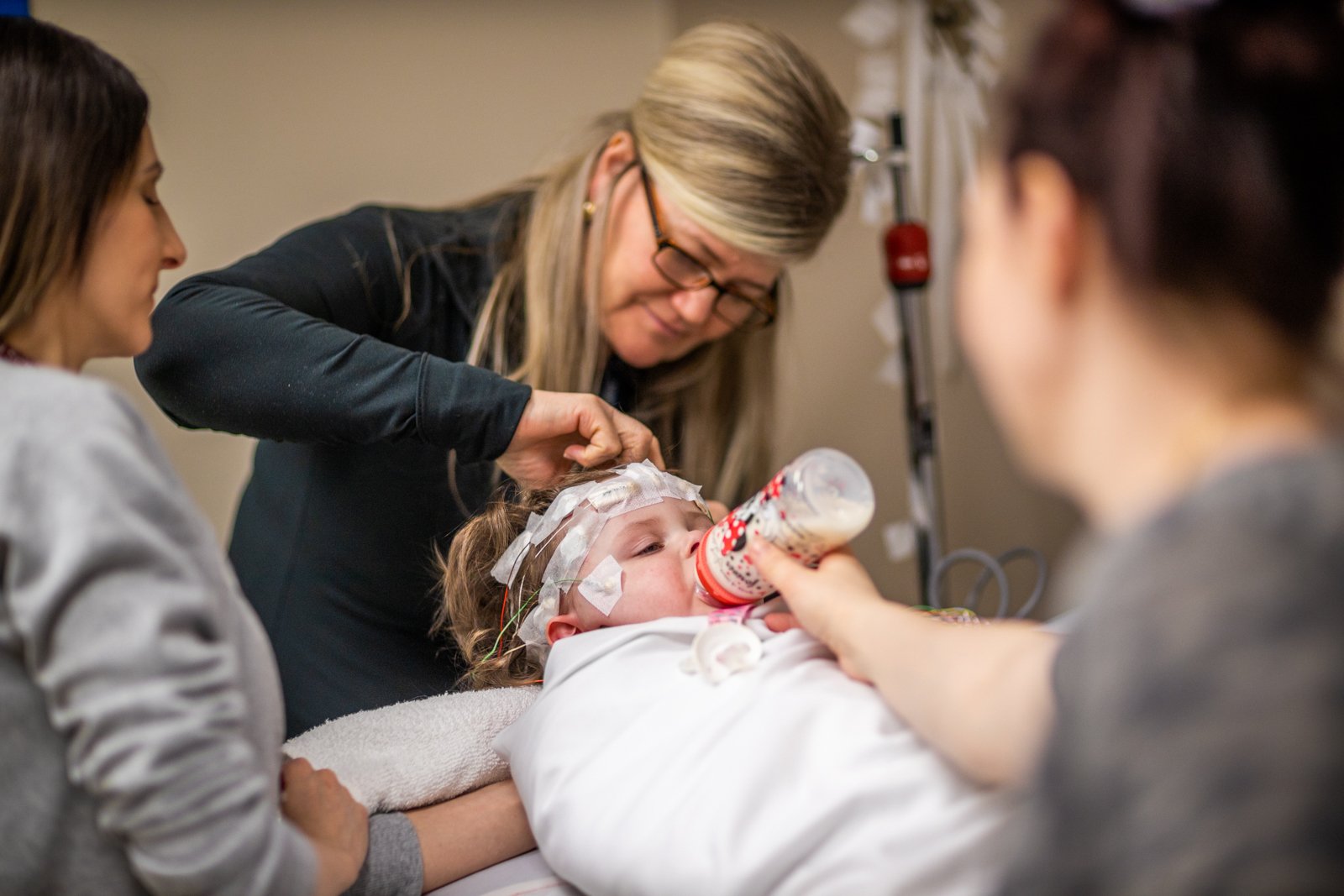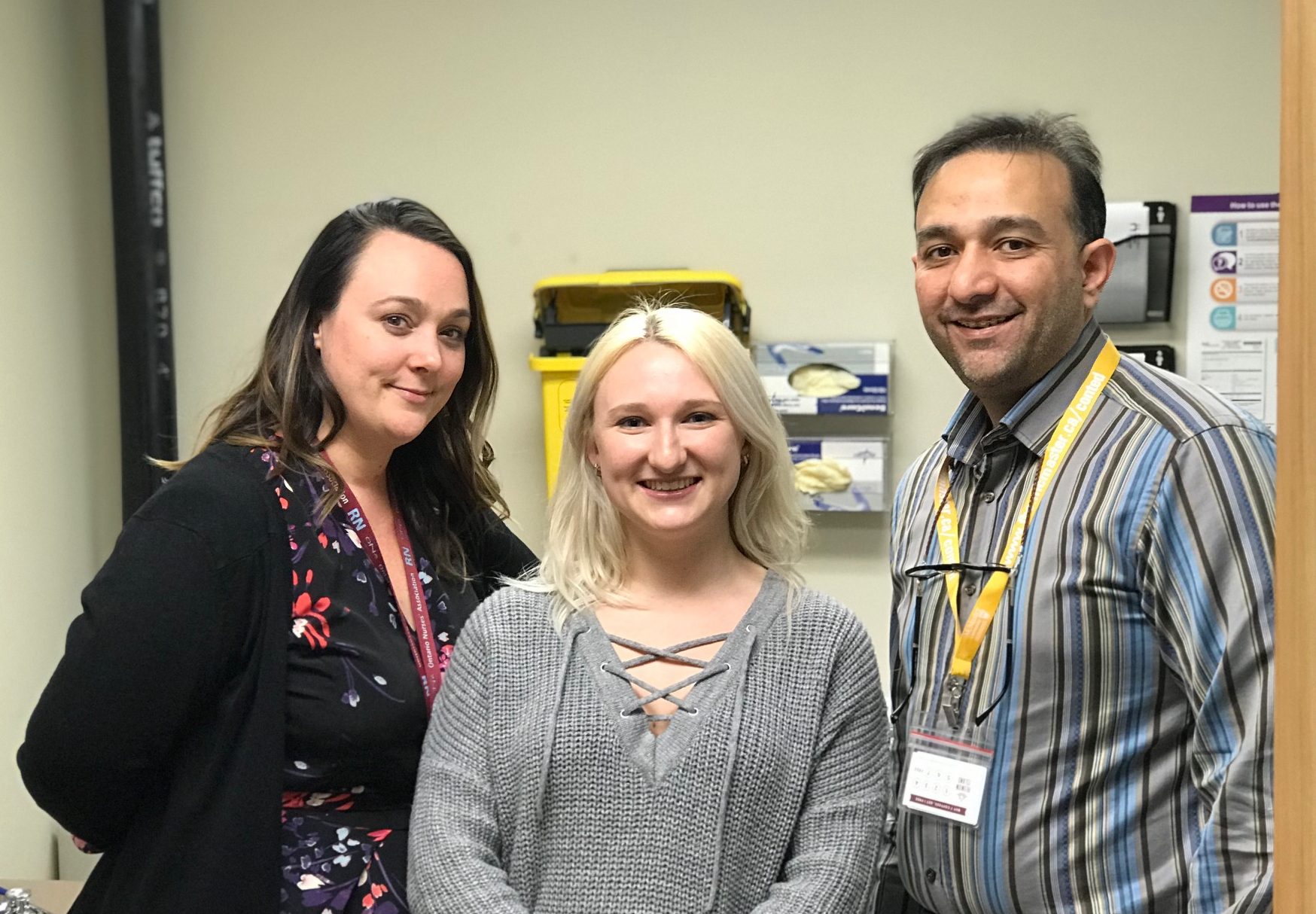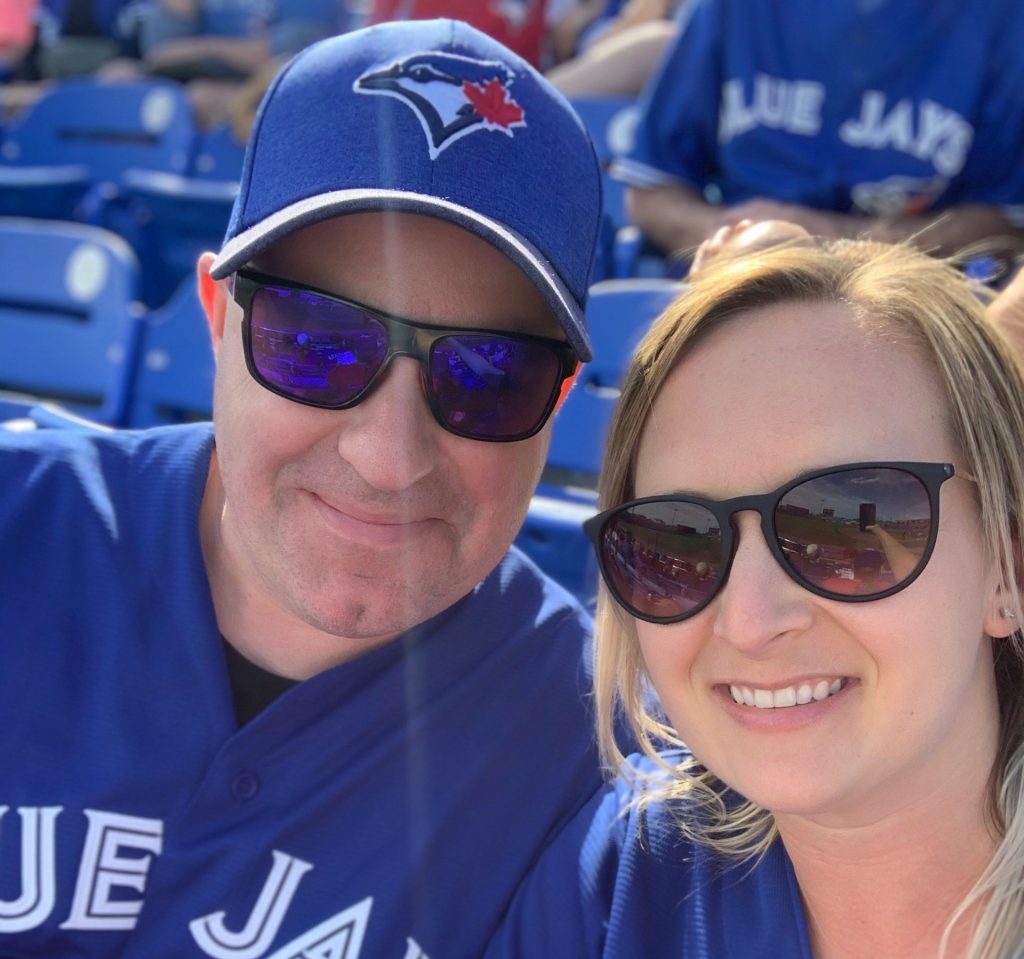
Epilepsy Monitoring Unit a “turning point” for patient experiencing seizures
Chris Kindy was in a casino with friends when he had his first seizure at 20 years old in 2001. He was rushed to a local hospital and then transferred to Hamilton Health Sciences’ (HHS) Hamilton General Hospital (HGH) where the team discovered an abnormality in his brain. Shortly after, Kindy suffered a brain hemorrhage (when an artery in his brain burst) as a result of a blood vessel abnormality called “cavernous angioma.”
Kindy needed emergency brain surgery. While the surgery was successful, it left him experiencing seizures during periods of high stress and exercise.
A turning point
Sixteen years after that first seizure, Kindy was still having minor seizures. While they weren’t significantly disrupting his daily activities, he felt controlled by medications and anxiety.
To see if he could increase his quality of life, he was referred to the Epilepsy Monitoring Unit at HGH by doctors at his local hospital who noticed he was still struggling.
“My life started to improve drastically.”
Patients stay in the Epilepsy Monitoring Unit overnight for a period of time, so their seizures can be continuously monitored using a video camera, microphones, and electroencephalogram (EEG) recordings that detect electrical activity in the brain using electrodes attached to the scalp.
This information helps doctors learn more about the seizures and safely adjust medications.
“I was fearful of going off medications,” says Kindy. “The epilepsy monitoring unit provided a safe place to try new medications.”
Kindy spent two weeks being monitored in the unit. The team was able to capture his brief seizure episodes and find the best medications and doses for him.
“We were able to optimize his anti-seizure medication, switching to a newer medication that was better tolerated, with fewer side effects and a good degree of seizure control,” says neurologist and epileptologist at HGH, Dr. Joseph Perumpillichira.
After finding the medication that worked best for Kindy with little side effects, he was able to return to school with minimal seizures, while also working full time.
“This would have never been possible before,” he says. “Now I can deal with more stress, I can exercise, and I have been seizure free for over a year, which is amazing,” he says. “I have never experienced that in 20 years. My life started to improve drastically. It was a turning point.”
Mental health matters
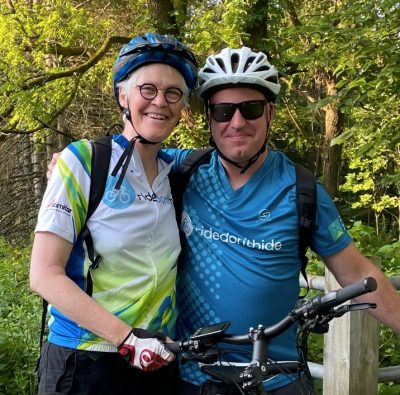
Chris Kindy (right) and his aunt Cherie Quinn cycled 1500 kilometres in two months to raise awareness for mental health.
Kindy says his previous seizures led to anxiety.
“I was scared I would have a seizure and be alone, or out doing something. It always impacted my life,” he says. “My physical and mental health have been transformed because of the work at this hospital.”
Kindy works in social services and noticed a high demand for mental health services from his clients during the pandemic. He wanted to give back and let others know there are supports.
“It is my hope that by telling my own story, as someone who with struggles with a seizure disorder and anxiety, that I can inspire others in Canada to know they are not alone, to reach out and ask for help and support,” he says.
Kindy signed up for the Canadian Mental Health “Ride Don’t Hide” event with a personal goal of cycling 1000 km to raise money and awareness for mental health. On June 27, he biked from HHS’ McMaster University Medical Centre in Hamilton to his hometown in Simcoe – a three-and-a-half hour trip.
“This journey would not be possible without the amazing support I received at Hamilton Health Sciences, who saved my life,” he says. “I’m very grateful.”
Show your support for children, youth and families impacted by epilepsy by donating to the Hamilton Health Sciences Foundation and designating your donation to the Epilepsy clinics.

